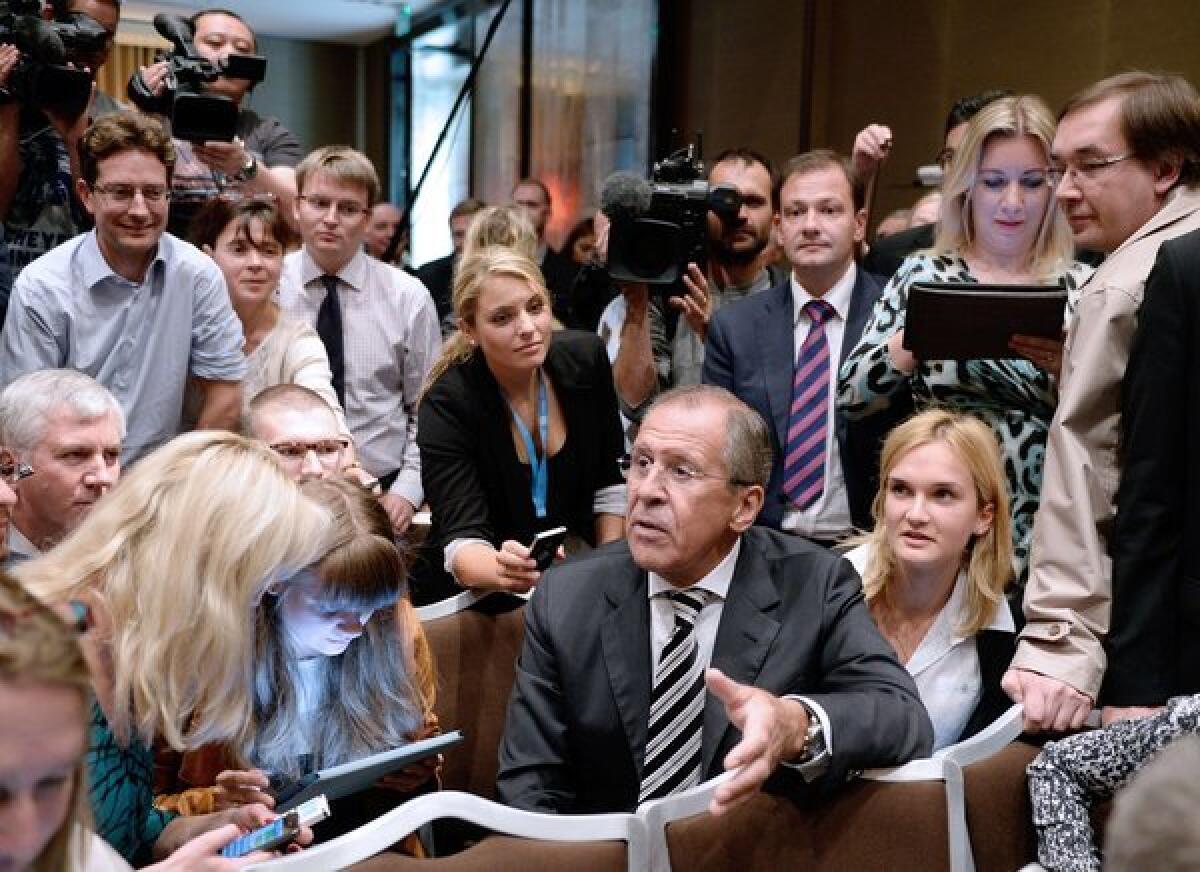Britain, France hail Syria disarmament plan

- Share via
LONDON – Britain and France, previously strong advocates for armed reprisals against Damascus, welcomed the U.S.-Russian deal struck Saturday outlining a plan for the Syrian government to give up its chemical weapons stockpile by the middle of next year.
Both London and Paris called the plan an important step forward in trying to resolve the bloody conflict between Syrian President Bashar Assad and the rebels who have fought for more than two years to topple his government.
“The priority must now be full and prompt implementation of the agreement,” British Foreign Secretary William Hague said. “The onus is now on the Assad regime to comply with this agreement in full. The international community, including Russia, must hold the regime to account.”
The disarmament plan was announced Saturday by U.S. Secretary of State John F. Kerry and Russian Foreign Minister Sergei Lavrov after three days of talks in Geneva. The agreement calls on Assad to give an accounting of his chemical arsenal within a week and to allow international inspectors full access to weapons sites by November.
The plan also allows for a United Nations resolution authorizing punitive action, such as sanctions, if Assad does not comply. The U.S. insists that military intervention should be an option as well, but Russia, which backs the Assad regime, opposes the use of force.
The plan’s timetable is extremely ambitious, and the technical challenges of inspecting, impounding and securing a large arsenal of chemical weapons in the middle of a raging civil war are great.
Kerry is scheduled to meet with Hague and French Foreign Minister Laurent Fabius in Paris on Monday to discuss the new diplomatic developments.
France has been loudly supportive of a military strike on Assad’s forces for their alleged use of chemical weapons in a deadly attack last month. A report by U.N. inspectors on the attack is expected to be delivered Monday.
Fabius said Saturday the French government would consider the report’s findings before adopting an official position on the new disarmament plan.
British Prime Minister David Cameron of Britain also supports military intervention as an option, though he has ruled out British participation in any such strike after Parliament refused to give him its backing.
ALSO:
Egypt’s Hosni Mubarak is back in court -- but not for longPhilippine Muslim rebels agree to cease-fire, still hold hostages
Riot police in Mexico clear teachers from historic Zocalo square
Twitter: @HenryHChu
More to Read
Sign up for Essential California
The most important California stories and recommendations in your inbox every morning.
You may occasionally receive promotional content from the Los Angeles Times.














